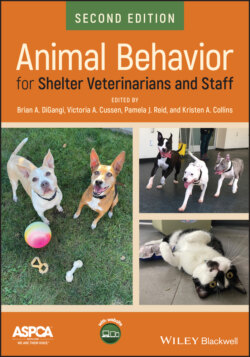Читать книгу Animal Behavior for Shelter Veterinarians and Staff - Группа авторов - Страница 179
5.3.1.2 Pet‐Friendly Housing Support
ОглавлениеIn addition to help with the basic need of nutrition, pet owners may need support in addressing the fundamental need of shelter, both for themselves and for their companion animals. This need is often particularly acute for clients living in rental housing. In one study, only 53% of rental accommodations were pet friendly, and of those only 11% allowed large‐breed dogs. According to the same study, most landlords of pet‐friendly housing required an additional pet deposit, and average rents for pet‐friendly units were 20–30% higher per month than the overall average (Carlisle‐Frank et al. 2005). In another study, 44% of renting pet owners reported having been declined as renters based on pet ownership, and 82% rated the process of finding their current residence as “difficult” (Power 2017).
Shelters can reduce relinquishments by providing pet‐friendly housing support. This support can include accessible information on local renting laws to inform clients of their rights as tenants, both in private and public housing units (Huegel and MacMillan 2014). Support can also include a database of pet‐friendly rental units and/or landlords. However, because not all pet‐friendly units are advertised as such (Power 2017), developing a robust database requires the use of multiple research methods to identify landlords who allow companion animals and to clarify any restrictions on species and/or size. Such a database needs to be regularly updated.
Effective housing support programs reduce shelter relinquishment caused by housing restrictions while benefiting the pet and owner by maintaining the human‐animal bond. They can also provide much‐needed housing security for pet owners who choose not to relinquish their companion animal(s), despite restrictions. As with food bank programs, pet‐friendly housing support presents another opportunity for collaboration with key stakeholders in the community, including attorneys, housing‐assistance programs, and other social service programs. Such connections can serve as another avenue for shelters to build a framework of community collaboration and provide a comprehensive support network in the community.
The resources needed to implement housing support programs vary based on their scope. Simple programs may only provide access to information linked on the organization’s website. Housing support that includes the development and maintenance of a pet‐friendly housing database or advocacy for pet‐friendly housing in the community requires a modest additional resource investment by the organization.
